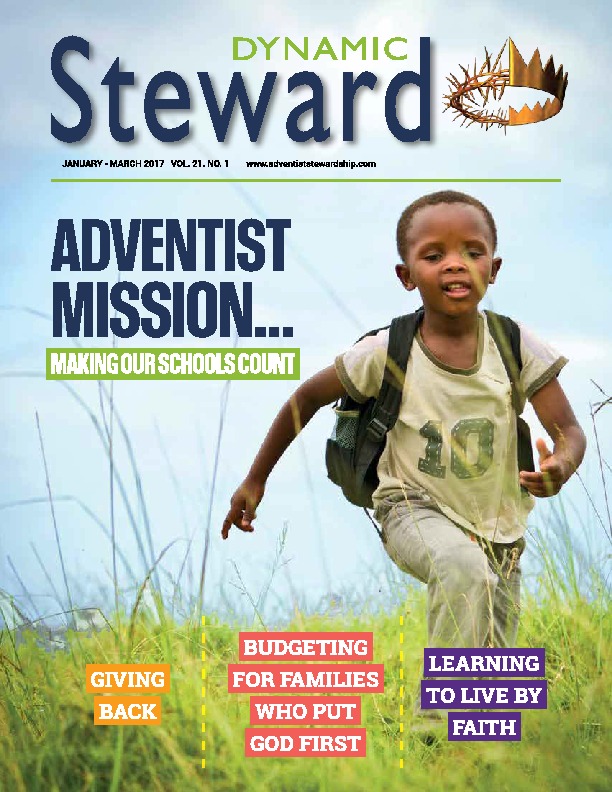MISSION STORIES
Enabling a Cycle of Giving
by Pr. Penny Brink
In the 1970s, villages in rural Kenya faced a water crisis. In fact, they were facing severe poverty stemming from the lack of water. The water in the region had dried up owing to deforestation for large-scale coffee plantations. Many women complained to Wangari Maathai that their children were starving.
Maathai was a Kenyan woman who became an elected member of Parliament under the government of President Mwai Kibaki between January 2003 and November 2005. She served as assistant minister for Environment and Natural Resources. She was inspired by the plight of the villagers to initiate what later became known as the Greenbelt Movement. Her actions led to her becoming the first African woman to receive the Nobel Peace Prize in 2004 for her contributions to sustainable development, democracy, and peace.
First, the women from the villages were taught how to grow seedlings using such methods as cultivating tree nurseries. People who planted and “made the trees survive” were given a token of appreciation in the form of a little money. Several things then began to happen. The water came back! The rivers were clean. The people could grow crops and produce their own food. They were able to invest their income in additional projects such as beehives for honey and goats for milk. They planted more than a million trees and recovered the natural resources essential for survival of the environment and themselves, thus ensuring a heritage for their children.
Wangari Maathai faced many challenges from those in government, but she continued to forge a path to sustainable development for these communities. You can watch the video version of this story on: https://youtu.be/BQU7JOxkGvo.
What a refreshing story! There are many things we can learn from it, such as how resilient nature is, and how generously it gives back when we grant it a little time and care ourselves. We often talk about the ecosystems within the natural environment. I wonder whether there is an ecosystem for giving also. Proverbs 11:25 says that “he who waters will also be watered himself” (NKJV).
What if giving isn’t a better strategy for gaining and growing than taking is? What if giving, contrary to what the Bible says, isn’t truly better than receiving? What if, when we give, we actually set off a chain reaction, like the ecosystems in nature? What if my giving produces a continued cycle of giving? What if our giving can generate so much more for us than if we keep things for ourselves?
"Her actions led to her becoming the first African woman to receive the Nobel Peace Prize in 2004 for her contributions to sustainable development, democracy, and peace."
I would like to suggest that in a biblical economy—one that holds to Christ-like values—human survival depends so much more on giving than on generating wealth. A focus on generating wealth can become an all-consuming burden. If one is poor, is it not the relationships we have generated through our own kindness or our own past generosity and the corresponding reciprocation that will keep us alive?
We can give only if we have received in the first place. We are born with nothing. Somewhere, someone has been our benefactor—God; our parents; those who have cared for us, educated us, fed us. If only we would keep the giving ecosystem’s integrity. If only we would keep on giving, because He who gave first is a generous God.“
Give, and it will be given to you. A good measure, pressed down, shaken together and running over, will be poured into your lap. For with the measure you use, it will be measured to you” (Luke 6:38, NIV).
Do we ever do anything without an agenda, like God does? Have I ever experienced the joy of unbridled giving? The joy of unselfish abandon? Can we trust enough to let go? I wish we could simply “cut loose” and trust the “ecosystem” of giving that God instituted. Letting His gracious gifts flow through me to others so that they can let it flow through them to yet others. The question we should be continually asking is: Whom else do I need to give to, so that they can give, too?

